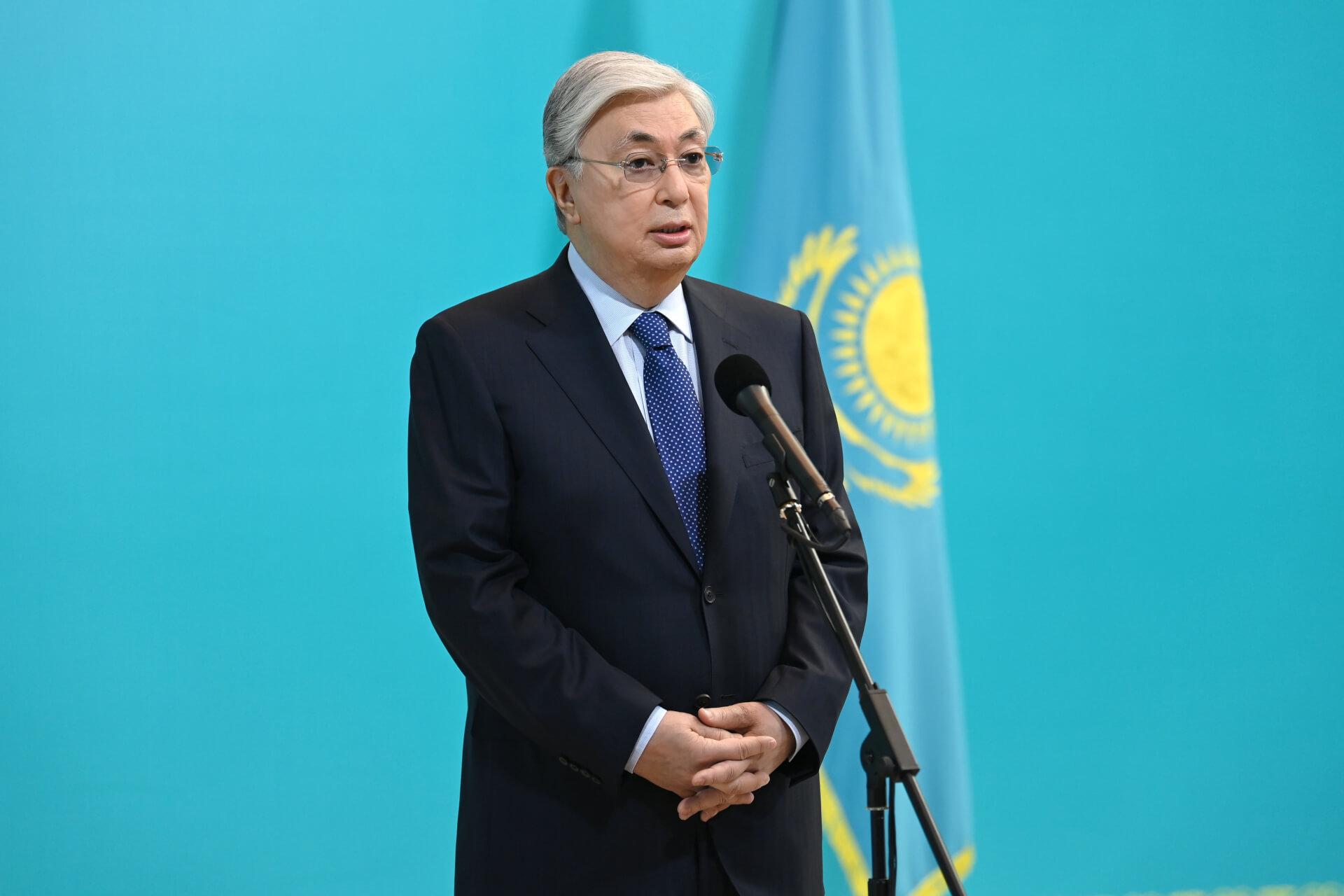Kazakh citizens on Sunday voted overwhelmingly in favour of a referendum on constitutional changes proposed by President Kassym-Jomart Tokayev. The changes would usher in a new governance model and signal a departure from the political system instituted during the 29-year rule of ex-President Nursultan Nazarbayev.
According to the final tally of votes from more than 10,000 voting stations across the country, the voter turnout was 68.06%. Per Kazakhstan’s Central Election Commission, 77.18% of those who cast their ballots voted in favour of the changes.
Kazakhstan's president Kassym-Jomart Tokayev said a commission had been formed to investigate January’s civil unrest. Tokayev's comments came following a referendum on constitutional reform that is seen as a step toward liberalizing the country https://t.co/IOIKx4txIn pic.twitter.com/unGjhwR6Xd
— Reuters (@Reuters) June 5, 2022
Changes to the constitution can only be accepted if over 50% of voters in at least 12 out of the 17 regions vote in favour.
Tokayev called the referendum “unique” after casting his ballot, noting that this was the first time the constitution was being amended by means of a nationwide referendum. Previously, changes to the constitution were adopted by the parliament.
Today's referendum in Kazakhstan, if passed as is likely, would do far more to constrain the former president's powers than the current one's. https://t.co/9qCYrRiJgQ
— Kenneth Roth (@KenRoth) June 5, 2022
“Today is an important historical day for our country, indeed. People are taking a fateful decision. There is no compulsion. The referendum has been organised at a high level,” Tokayev said.
Once adopted, the referendum will make changes to 56 articles of the constitution. The changes aim to limit the president’s powers and give more power to the parliament. For instance, it would bar the president from being a member of a political party while holding office, and the president’s relatives would be prevented from holding key positions in the public sector.
Kazakhstan President Kassym-Jomart Tokayev Cast His Ballot in Nationwide Referendum
— President Kassym-Jomart Tokayev's Press Office (@AkordaPress) June 5, 2022
Having cast his ballot, the President held a briefing for representatives of the national media.
Read more: https://t.co/OsApq5unMG pic.twitter.com/N1FB5ehtsH
The changes also seek to decentralise political power in the country by giving more responsibilities to regional and local government bodies. In fact, the president will now need the approval of local assemblies before appointing mayors and governors.
Even though Nazarbayev stepped down in 2019, he still retained the constitutional title of ‘Elbasy’ or ‘leader of the nation.’ This status granted him significant perks, including lifetime immunity from prosecution, an improved pension, and enhanced security detail. In addition, any criticism against Nazarbayev is prohibited and deemed an offence.
Will Kazakhstan remain the same after the referendum? The January unrest demonstrated that reforms are badly needed: more democracy, more popular participation, less corruption. The pathway to OECD membership begins today & won’t be easy in view of the neighborhood & challenges. https://t.co/GMu2oHpRc3
— Ariel Cohen, PhD (@Dr_Ariel_Cohen) June 5, 2022
Following widespread protests against the government in January, Tokayev called for a reform of the country’s political system and proposed changes to the constitution. The president also took several steps in this regard, including resigning as chairman of the ruling Amanat party, sacking Nazarbayev as the head of the National Security Council, and removing the relatives of the ex-president from several high profile roles in public sector enterprises.
Protests erupted in Almaty, Nur Sultan and the Mangistau province on January 1 after the government lifted price caps on Liquefied Petroleum Gas (LPG), a fuel widely used by Kazakhs to power their vehicles, and doubled LPG prices. The demonstrations quickly boiled over into violent riots, wherein protesters ransacked government buildings and offices, including the presidential residence and mayor’s office in Almaty.
At least 238 people, including police officers, were killed in the unrest, the worst in the republic in over a decade.

